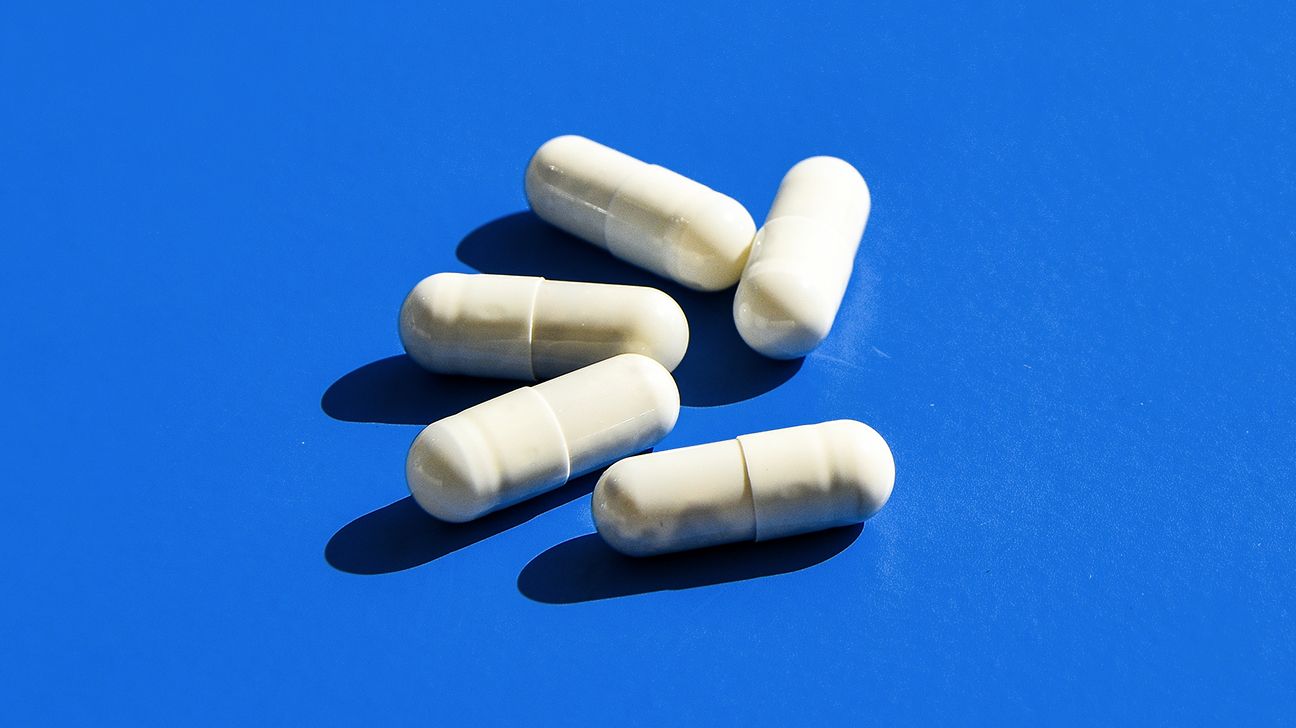Lysine is all the rage in the beauty realm. Some folks swear this amino acid can even zap your zits like a pro.
But can lysine really help treat acne?
A diet rich in essential nutrients and amino acids is fab for your overall health. However, there’s not enough research to prove that lysine can cure acne on its own. (Sorry to pop your pimple!)
The good news? Lysine has other rad and proven skin perks.
Here’s the lowdown on lysine’s skin benefits.

Lysine (aka L-lysine) is a super essential amino acid. It helps you:
- build protein
- absorb calcium
- keep your immune system on fleek
- produce hormones, enzymes, collagen, and elastin
A 2004 study showed that in communities experiencing poverty where people eat wheat-based diets, lysine supplementation may reduce anxiety and stress responses.
Your bod can’t create lysine on its own — you need to get it from your diet. You can also take a supplement (more on that later 😉 ).
How much lysine do you need?
According to the National Academy of Sciences, adults need about 38 milligrams of lysine per kilogram of body weight a day. Kiddos should get 40 to 62 milligrams of lysine per kilogram of body weight a day — the exact amount depends on their age.
While lysine isn’t a magic acne cure, it might support your skin in other ways, like:
- Aids collagen production. Lysine helps build collagen in your skin, according to 2012 research review. What’s collagen? Just the secret sauce (aka a protein) that helps your skin stay firm and elastic.
- Might treat cold sores. Cold sores are the pits. While research is limited, a 2017 research review found high doses of lysine helped improve symptoms.
You’re prob getting enough lysine through your diet. But if not, your doc might suggest a supplement.
Oral lysine supplements are generally considered safe. But you should always talk with your doc before adding one to your regimen.
Lysine toxicity is pretty rare, but there are some potential side effects.
According to the Genetic and Rare Diseases Information Center, children who are intolerant to lysinuric protein may get stomach cramps or diarrhea from lysine supplements.
You should also talk with a doc about your lysine levels if you:
- have liver disease
- have kidney disease
- are pregnant or breast-feeding
PSA: Check your supplements for quality and safety! A good rule of thumb is to opt for brands that are National Science Foundation (NSF)-certified or have solid ratings from the Consumer Lab.
The best way to get lysine is through food. Great examples include:
- fish
- pork
- quinoa
- chicken
- legumes
- red meat
- avocados
- wheat germ
- cottage cheese
- macadamia nuts
FYI: Your body needs other nutrients to absorb lysine. This includes B vitamins, vitamin C, and iron.
There’s no one one-size-fits-all way to ditch your zits. But there are some top-notch treatments that can keep your acne at bay. Here’s the best of the bunch.
- Salicylic acid. Over-the-counter (OTC) products with salicylic acid may work for your whiteheads or blackheads. It helps slough off dead skin cells and unclog pores.
- Benzoyl peroxide. OTC products with benzoyl peroxide can treat those dreaded pus-filled pimples. It helps remove dead skin cells, excess oil, and bacteria that can cause acne.
- Exfoliation. Exfoliating helps remove dirt, debris, and dead skin cells. Just be cautious of harsh physical exfoliants (like scrubs) on your face. Many derms actually discourage them because they can be irritating and cause micro-tears in the skin. Keep exfoliation to a few times a week to avoid irritation (and be gentle!).
- Prescription meds. Getting rid of inflammatory acne — like cysts, steroid acne, or pustules — can be tough AF. Your dermatologist might prescribe a medication to help. Popular options include antibiotics, retinoids, or hormonal treatments.
Clear skin takes time
It’s totes OK if you don’t see clear skin right away. Skin turns over every 40 to 56 days, according to a 2009 research review. So, whatever acne treatment you go with, results won’t happen overnight.
Reminder: You’re 👏 absolutely 👏 fabulous 👏 no 👏 matter 👏 what 👏 .
Lysine is an essential amino acid that plays an important role in protein synthesis, calcium absorption, and the production of hormones and enzymes. While it’s important for overall health, there’s no evidence that it can cure acne on its own.
The best way to prevent and treat a breakout is to maintain a balanced diet and lifestyle. You can also use OTC acne products. For more severe cases, your doc might suggest a medication or changes to your diet.

